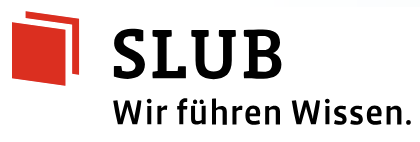The Framework Conditions for Teacher Collaboration in the First Year of the Music Education Program "An Instrument for Every Child". Results of a Qualitative Interview Study
DOI:
https://doi.org/10.62563/bem.v2014104Abstract
The program “An Instrument for Every Child“ (German acronym: JeKi) in North Rhine-Westphalia provides primary school students with the opportunity to learn a musical instrument. In the first school year, the students are taught by two teachers per class: One primary school teacher and one music (instrumental) teacher teach tandem and familiarize the students with a range of musical instruments. If the students continue to participate in the program, they receive music lessons in small groups on the instrument of their choice starting in their second year at primary school. The Cologne-based research project “GeiGeâ€, a part of the JeKi program, investigated how teachers evaluated this type of lesson collaboration, as well as their opinions on the respective institutions: How do music school (instrumental) teachers assess their situation within the primary school? What are the primary school teachers’ views on the JeKi program? In a qualitative study, 12 interviews were conducted with primary and music school teachers working in the Ruhr district. The interviews were then analysed using the grounded theory methodology. It became clear that both groups of teachers value the JeKi program as an opportunity, especially for disadvantaged students. A criticism was the lack of time for the realization of the program: There was insufficient time for the development of the program and for the (collaborative) daily preparation of lessons. The JeKi lessons for all age groups take place in primary schools, making them a significant factor of the project. The primary school teachers, who are responsible for the coordination of the JeKi lessons in their respective school, complain about the enormous effort required by the realization of JeKi lessons in the daily school routine. The general teaching staff of the primary schools is often not consciously aware of the music school teachers who come to teach the JeKi lessons on an hourly basis. These music school teachers are mainly noticed only when they “disturb†the dense and interconnected daily school schedule. The music school teachers themselves compare their situation at the schools to having the status of a “guestâ€. Both positive and negative experiences can be captured by means of this central category. Some music school teachers feel welcome at the primary schools; others have the impression of being “unbidden†guests. In any case, these teachers occupy a weak position in any conflict situation. Both groups of teachers express the opinion that the JeKi program has been “imposed†on the schools, instead of being introduced at an appropriate pace – a factor that they perceive as being partially responsible for the conflicts and problems occurring in the daily school routine. This situation constitutes a problematic framework for the teaching collaborations in the first school year. Both teacher groups clearly articulate the opinion that the causes of the difficulties in the daily school routine are not the fault of the people involved, but caused by the system. In the following article, the teachers’ views on the framework conditions for collaboration within the JeKi program are differentiated in order to gain indications for possible improvements within the scope of the program’s development.
Keywords: cooperation, grounded theory study, institutions, music-education, program "An Instrument for Every Child", qualitative research, teacher research
Downloads
How to Cite
Issue
Section
License
Bulletin of Empirical Music Education Research (b:em) is published as an open access online journal. All articles are freely accessible online free of charge, there are no publication fees (Diamond Open Access). The standard licensing of the articles is CC BY-NC 4.0 (Creative Commons Attribution-Non Commercial 4.0 International (CC BY-NC 4.0))


